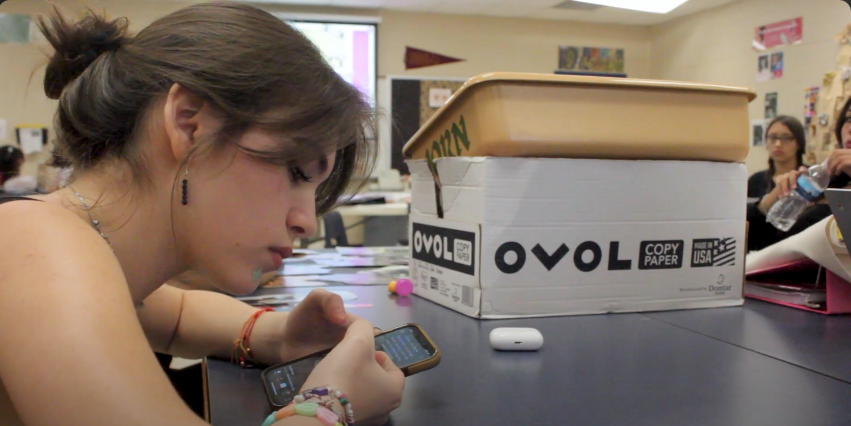Lauren Loveless | staff writer
It’s the middle of the first semester and life is going great; your friendships are flourishing and grades soaring high. Then suddenly BOOM! You’re hit with an unfamiliar, idiopathic illness that puts you in bed for a week. Your symptoms linger for months and you’re beginning to wonder, could this be more than just a simple bug?
Discovering that you’ve developed a chronic illness in the middle of the school year can be challenging, disheartening, and most importantly, life changing. It feels akin to losing a part of yourself; that you have a hindrance and can’t reach the peek you were previously at.
In short, chronic illnesses are conditions that last for more than three months–common diagnoses include asthma, diabetes, and some viral diseases. In most cases, these illnesses are either inherited or idiopathic (meaning a condition of unknown origin). Some disease are worse then others, however, they all have the potential to harm someone’s quality of life.
Chronic illnesses, most commonly, can have a harsh impact on someone’s school life. Suddenly, keeping grades up isn’t a priority, because with all the school you’re missing as a result of countless doctor appointments, you feel like you’re drowning in make-up work.
While teachers are often sympathetic towards illnesses, their leniency can only go so far. You’re expected to catch up, and fast. Despite the fact that you may be combating depression, anxiety, or worse, suicidal thoughts. Moreover, there’s the constant symptoms you have to cope with, which could include, but is not limited to: nausea, fatigue, headaches, excruciating pain, vomiting, etc.
Outside of school, chronic illness can have an impact on someone’s social life, depending on what they’re dealing with. Gastrointestinal problems, which oftentimes includes nausea, vomiting, and severe pain, strongly discourage a person from going out. There’s the constant fear that you may throw up and embarrass yourself, or that won’t be able to enjoy the rush of running around and having a good time.
Moreover, chronic mental illnesses also have a toll on day to day life. You know that one cute town you used to love visiting with your family? Suddenly that’s unattractive. Now, the only appealing place is your bedroom, where you can conceal yourself and escape from the seemingly uncaring outside world.
Many students, probably the majority, in some way relate to these illnesses-be it physical or mental. And the school system, for the most part, just doesn’t care or tend to said students. There’s no aid, no leniency, because we all need to suck it up and realize that’s just life… However, it’s not that simple and the U.S school board needs to realize this.
Take Japan for example: at Japanese schools, you’re allowed to miss as many school days as needed to care for your illness. These missed days will not impact your school career and are actually encouraged, so that you don’t get others sick.
Clearly, America could learn a thing or two from Japan and other countries that have similar policies, such as the Netherlands.
No one wants to develop a chronic illness, and given the fact that they can be life changing, there needs to be more consideration in school especially.








